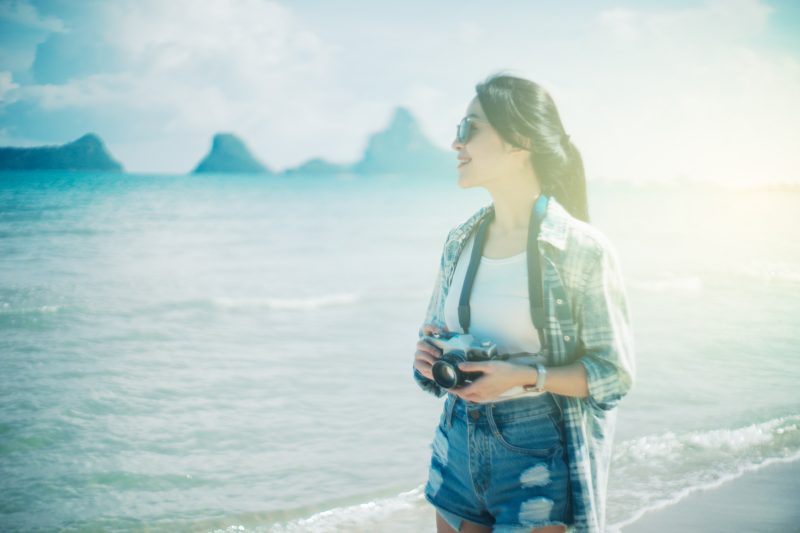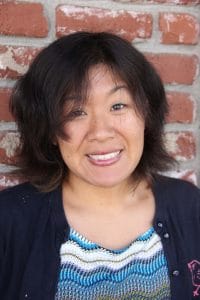PUBLISHED: 9th January 2018

by Amy Wu
In the aftermath of my cancer diagnosis and treatment, an advocate–at times raging and impatient—unexpectedly emerged. I consider myself an introvert, in some ways fitting into the stereotypes of the model Asian American—hardworking, obedient and conservative, but the close call with what I was convinced was death at the age of 37 (now almost five years ago) ignited a voice in me to share my own story, and to reach out to other women of my vintage.
I’d been working as an expat at the tail end of my stint in Hong Kong when I was diagnosed and treated. I got my cultural crash course—cancer was unspoken and fit into the category of “dirty laundry,” including divorce, mental illness, death and even events that I would consider joyful, such as adoption.
The response to my diagnosis was clinical if not technical. Once in Hong Kong, during a family meal of crab, fish and dumplings, my aunt and I had a conversation about scheduling radiation. “The fish fresh today, much better than the last time,” my uncle commented. Everyone nodded. It was as if my journey was nonexistent. The unspoken spoke volumes.
Fortunately, just a click away on Google or Facebook I swiftly found communities of support and advocacy groups for young women. Thankfully, soon after the radiation treatments I returned to the U.S. to start a new chapter, personally and professionally.
I went to a whirlwind of cancer conferences and gatherings for young women, seeking out like-minded women as an oasis, but over the course of several conferences I noticed a landscape that lacked women who looked like me. And then I wondered if they existed. Certainly I knew there were Asian women in my situation, since in my brief time in Hong Kong I’d met them randomly through friends and through the Hong Kong Breast Cancer Foundation, the leading breast cancer resource for women in Hong Kong. The Foundation hosted a support group for survivors, although all of the attendees spoke Cantonese and all were over the age of 50.
And then, at a recent educational conference in California this past year, I met a handful of Asian American women, including a software engineer from the San Francisco Bay Area and a soccer mom from Silicon Valley. They told me that they met regularly for support or to socialize, and loosely called themselves “The Joy Luck Club,” a reference to Amy Tan’s bestselling book.
“I didn’t know this group existed,” I said, dumbfounded.
“Well, we’re there, it’s just that everyone is scattered,” one woman said to me. No one was sure why there weren’t more of us at these conferences or more of us sharing our personal stories.
While happy about my find, I continue to be concerned about the paradox of the reality. Research shows there is a rise in the number of Asian American women in California with breast cancer. A recent study profiled by the FORCE XRAYS program, and published in Breast Cancer Research and Treatment by Scarlett Lin Gomez, PhD, from Stanford Cancer Institute and the Cancer Prevention Institute of California, suggested that rates in different Asian American ethnicities in California have steadily risen between 1988 and 2013.
On the other hand, there is a dearth of discussion and outreach to this community that remains very much under the radar. A power in numbers is critical for support—it would be great to speak to others like myself. Young Asian American women face unique challenges, much of it cultural. As the children of immigrants, we grew up under generations who were taught to not talk about negative things.
But by keeping breast cancer in a closet, we are also denied an outlet, emotional support, and very often the impetus to become advocates and share our stories. Arguably, this is critical for healing and long-term well-being.
The fight against this god-awful disease also has a dangerous domino effect on the scientific aspect, specifically research and funding. A fellow advocate recently reached out to me, asking that I reach out to the Asian community and ask for tissue samples for the Komen's Healthy Tissue Bank Collection, which will be used for research. Breast cancer affects minority women differently than Caucasian women and it is often more aggressive, the callout noted.
Without a spectrum of volunteers and samples from different ethnic and racial groups, research is limited. The same goes for genetic testing. In talking with other Asian American women, few, if any have been genetically tested, assuming that challenges are limited to Ashkenazi Jews. But in fighting breast cancer, there is no room for assumptions.
Given the latest findings on an increase in Asian American women diagnosed with the disease, there is an even greater need for funding, research, outreach, education and prevention.
It would be easy to look at the women I met on the dance floor or the women who I saw in waiting rooms and emerging from examination rooms, and to probe them about the roots of their silence. There are moments when I feel an onslaught of desperation and I am tempted to make a public call to action.
Moving forward
Although there are no simple solutions to the paradox, I see a slant of sun. There are the women on the dance floor. There are breast cancer organizations aiming to address underserved populations, including Latinos/Hispanics. And there are grassroots efforts, including the National Asian Breast Cancer Initiative, an organization engaged in fundraising and sharing research and information through social media.
These are baby steps, but nonetheless they are steps moving forward. In the meantime, I will continue attending the gatherings and confabs and sharing my story. It comes down to a leap of faith.

Amy Wu is a member of FORCE’s XRAYS Steering Committee and is young survivor. She is based in New York.
POSTED IN: Health Equity And Disparities , Diversity And Inclusion
TAGS: Diversity , Health Disparities , Health Equity , Asian American